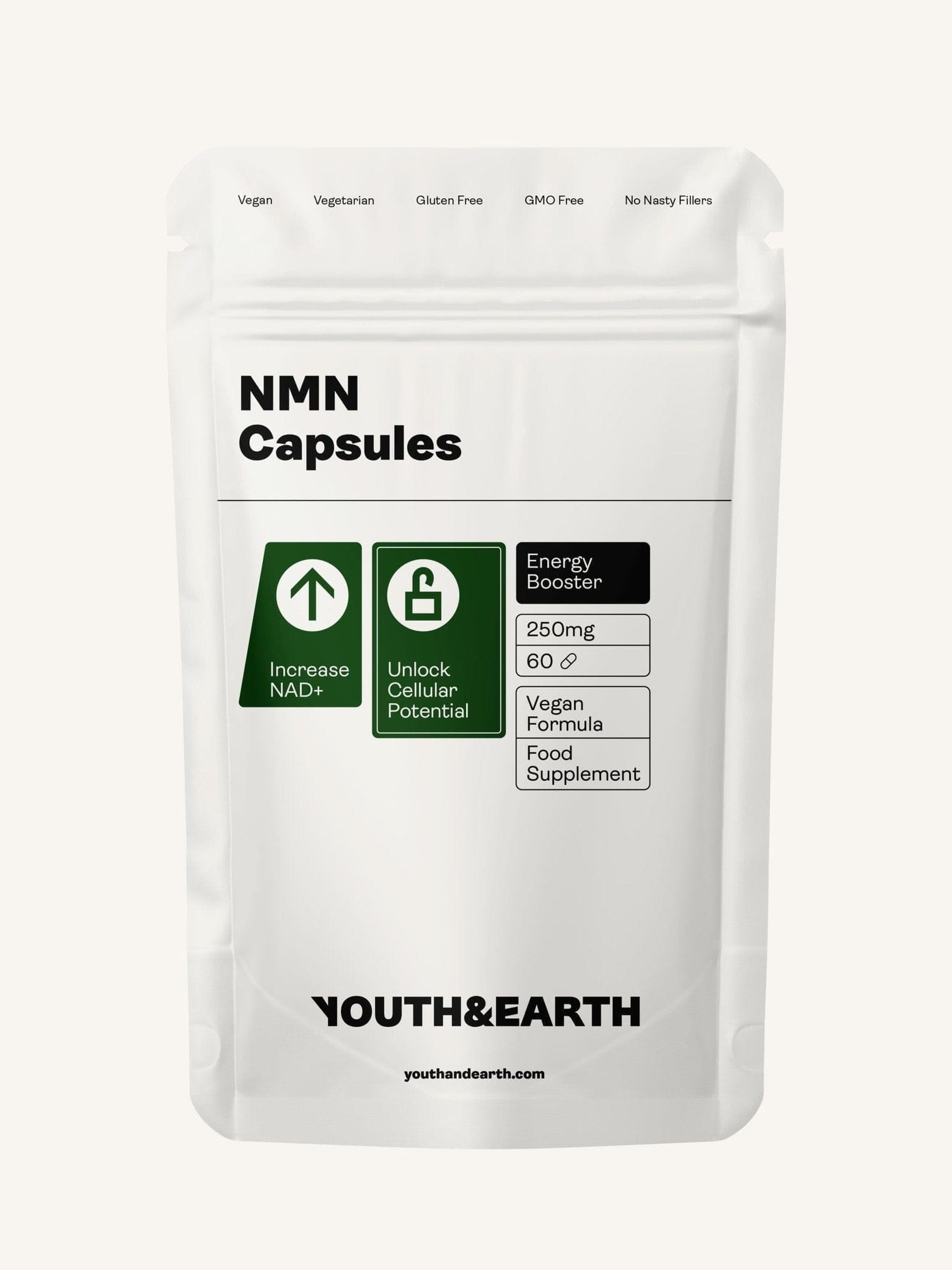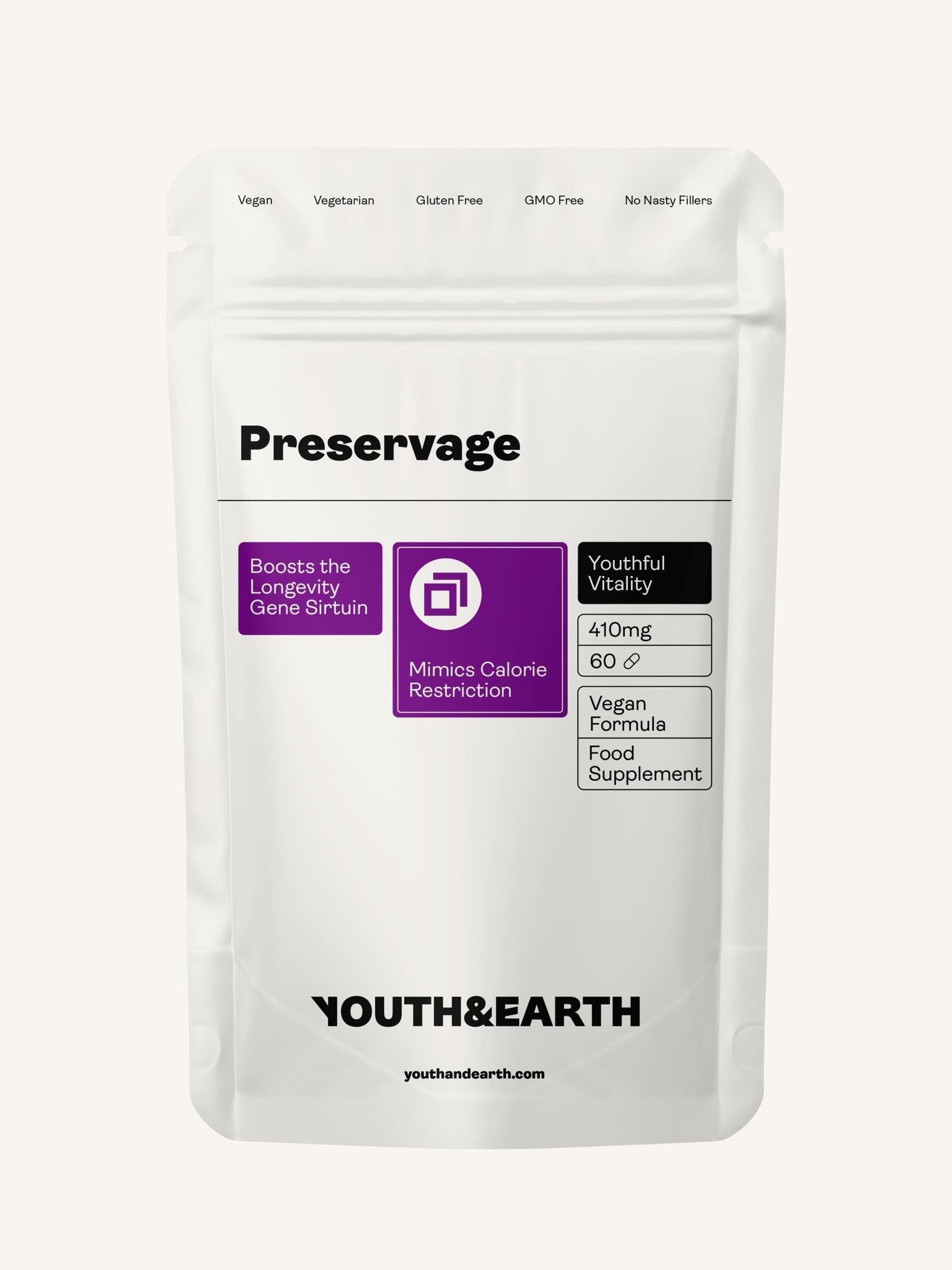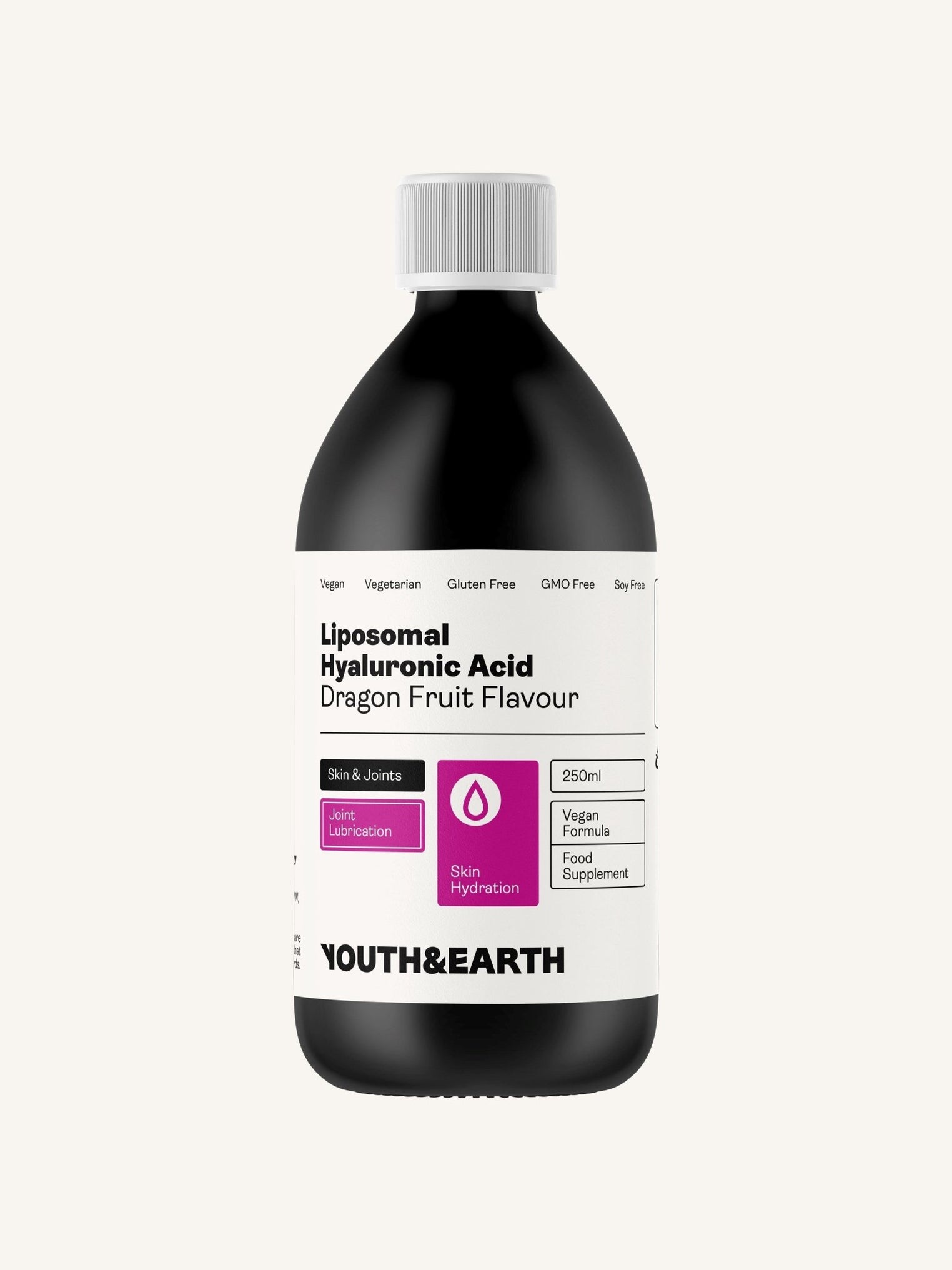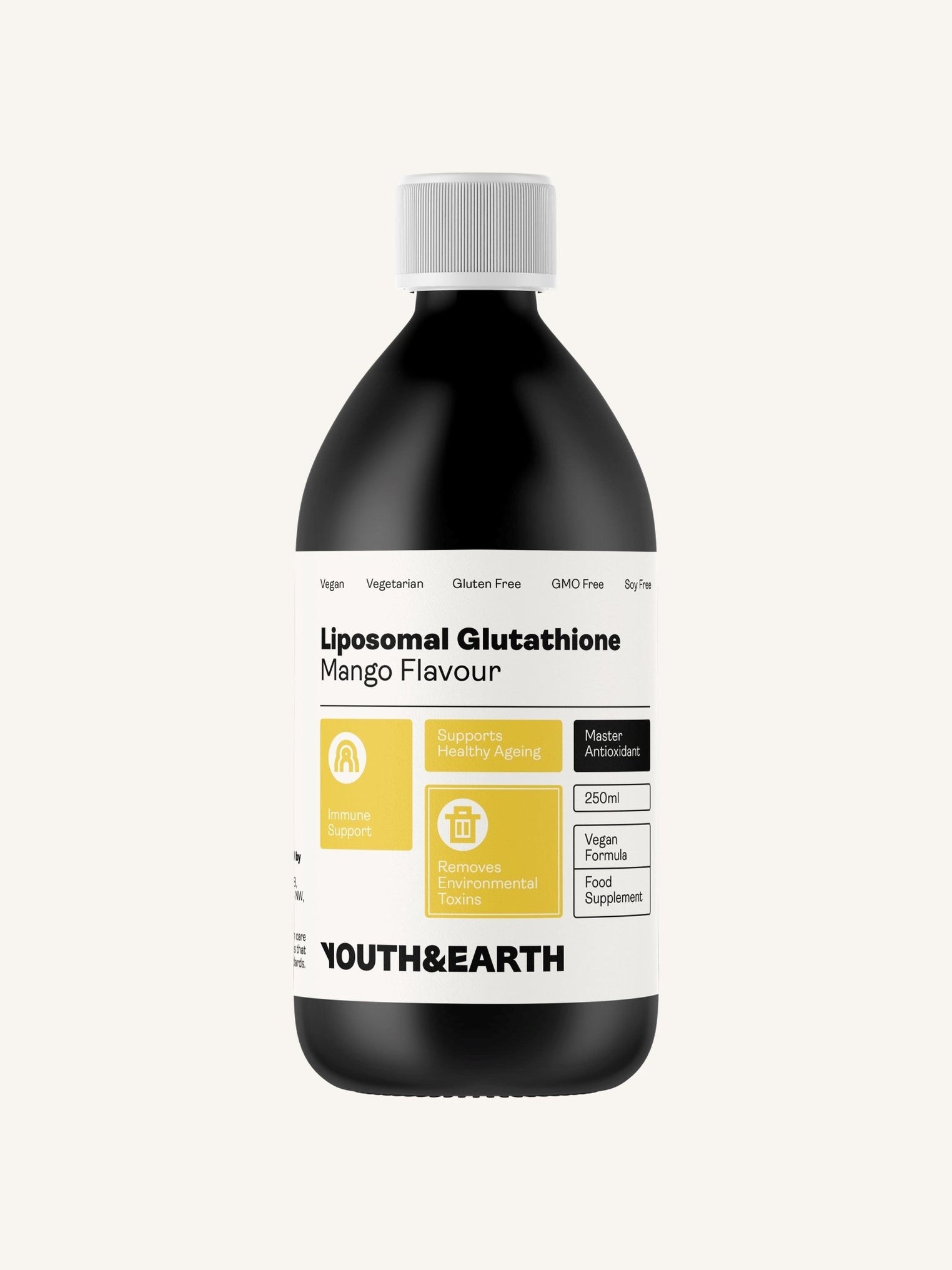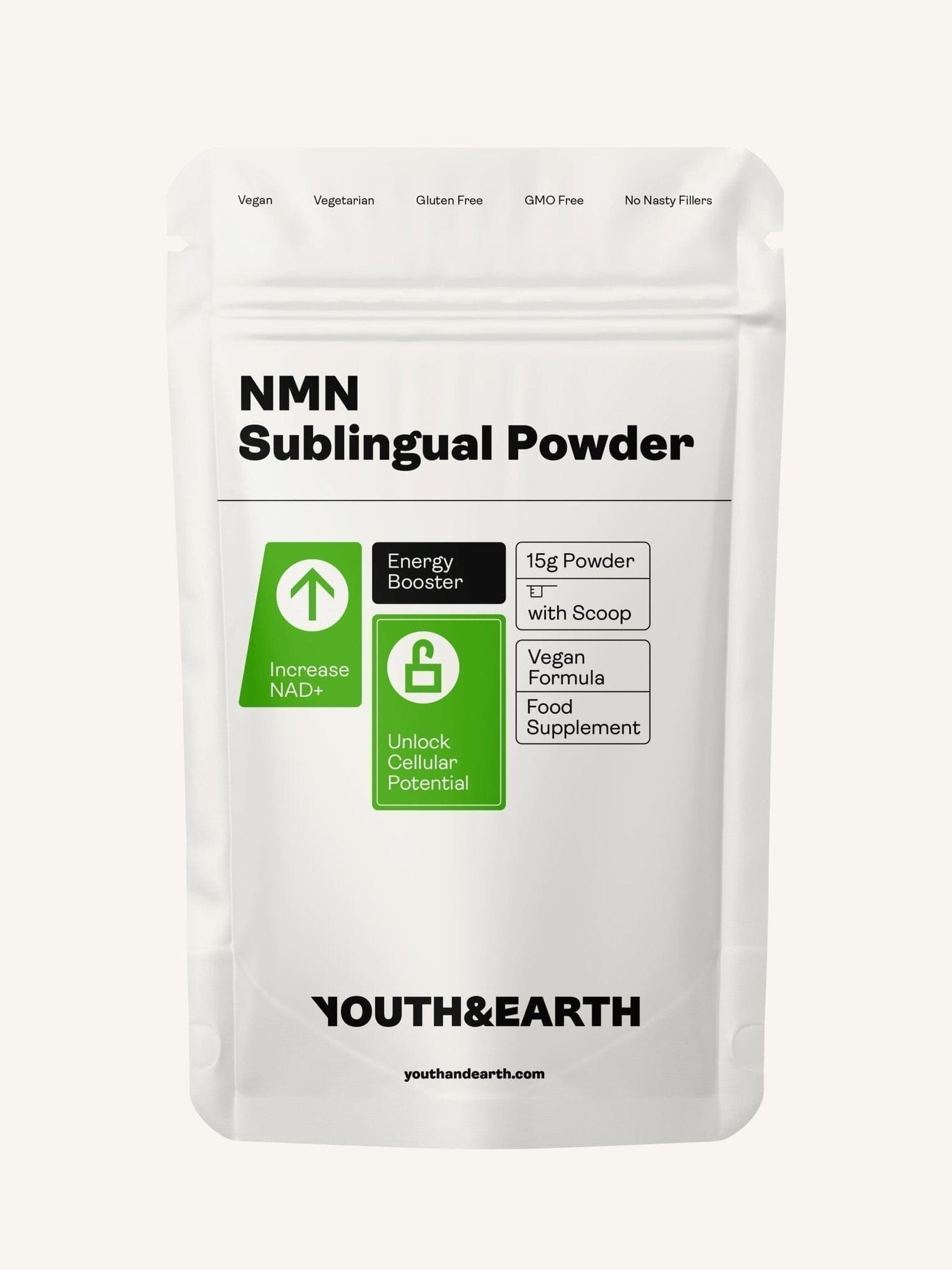O ácido alfa-lipóico é um ácido gordo natural que é produzido nas células do nosso corpo. O ALA ajuda o corpo a transformar nutrientes em energia e é um poderoso antioxidante que evita danos às nossas células, ajuda a reduzir a inflamação e retarda o envelhecimento. Também mostra um grande potencial para ajudar as condições crónicas que estão normalmente associadas ao envelhecimento.
O que é o ácido alfa-lipóico (ALA)?
O ácido alfa-lipóico (também conhecido como ácido tióctico ou ácido lipóico) é um composto natural que é sintetizado em animais e plantas. O nosso organismo também pode produzir ALA, pelo que não é reconhecido como uma molécula essencial. No entanto, é muito importante na produção de energia e é um potente antioxidante que protege o corpo dos danos celulares causados pelos radicais livres.
Qual é o papel do ácido alfa-lipóico no organismo?
O ácido alfa-lipóico é um antioxidante único, na medida em que é simultaneamente hidrofóbico e hidrofílico. Isto significa que se dissolve tanto na água como na gordura, o que o torna acessível a todas as células e tecidos do corpo. Tanto quanto sabemos, o ácido lipóico parece ser utilizado em vários processos celulares, mas, tal como acontece com muitas moléculas, a investigação está em curso. Eis algumas das formas como o nosso organismo utiliza o ácido lipóico.
Ajuda na produção de energia
Como mencionado, os nossos corpos produzem pequenas quantidades de ALA que se encontram nas mitocôndrias das nossas células. A mitocôndria é a casa de força de uma célula e o ALA, como a CoQ10, é uma das coenzimas que ajuda na produção de energia celular. Por outras palavras, ajuda o seu corpo a produzir ATP (adenosina trifosfato).
Para saber mais sobre coenzimas, leia Como a coenzima Q10 pode melhorar a sua saúde
Ativa e inibe importantes vias de longevidade
O ácido alfa-lipóico parece ativar a proteína quinase ativada por AMP (AMPK), mas também demonstrou inibi-lano hipotálamo. A AMPK é uma das vias de longevidade que controla a forma como o corpo converte e utiliza a energia. Quando ativada, ajuda o corpo a transformar gordura em energia de forma eficiente e impede o armazenamento de gordura. No hipotálamo, a AMPK parece desempenhar um papel na regulação do apetite. Quando os níveis de AMPK são suprimidos no hipotálamo, parece diminuir o apetite, levando a uma redução na ingestão de alimentos.
Para mais informações sobre a AMPK e a forma como pode ajudar a retardar o envelhecimento, veja o vídeo abaixo realizado por Lance Hitchings.
O NF-kB é a principal via que controla o complexo processo inflamatório no nosso corpo. A inflamação é benéfica quando combate infeções ou faz parte da cicatrização de uma lesão, mas níveis elevados constantes de inflamação levam a uma série de doenças crónicas e ao envelhecimento prematuro. O ácido alfa-lipóico parece inibir o NF-kB, o que ajuda a regular a inflamação, além das suas propriedades antioxidantes que também combatem a inflamação.
Se estiver interessado nas vias da longevidade, leia:
Combate a inflamação e previne os danos celulares
O ácido alfa-lipóico é um poderoso antioxidante que previne danos às nossas células e ao ADN, eliminando os radicais livres. Também desempenha um papel na regeneração de outros antioxidantes. Como antioxidante, combate a inflamação e a deterioração associada que leva a doenças crónicas.
Pode ajudar a desintoxicar o corpo
Também pode ajudar a desintoxicar o corpo da toxicidade dos metais pesados e desempenha um papel importante na produção de glutationa, um antioxidante importante que ajuda o corpo a desintoxicar-se e eliminar potenciais toxinas e carcinógenos.
Para saber mais sobre a glutationa, leia: O que é a glutationa e por que ela é antienvelhecimento?
Pode ajudar a regular os níveis de açúcar no sangue
Por ser um poderoso antioxidante que reduz o stress oxidativo e a inflamação, o ácido alfa-lipóico parece desempenhar um papel na regulação dos níveis de açúcar no sangue e do colesterol. A maior parte da investigação foi feita em pacientes que sofrem de diabetes de tipo 2, mas em vários estudos, foi demonstrado que aqueles que tomaram ALA apresentaram uma melhor sensibilidade à insulina.
Que alimentos contêm ácido alfa-lipóico?
O nosso organismo pode produzir naturalmente pequenas quantidades de ácido alfa-lipóico. Também pode ser encontrado em pequenas quantidades em alimentos como:
-
Brócolos
-
Espinafres
-
Tomates
-
Couves-de-bruxelas
-
Ervilhas verdes
-
Inhame
-
Batatas
-
Fígado e carnes de órgãos
-
Carnes vermelhas
Mas para manter o ALA em níveis óptimos e usufruir dos seus benefícios para a saúde à medida que envelhece, recomenda-se a toma de um suplemento de ácido alfa-lipóico de alta qualidade.
Que doenças pode o ácido alfa-lipóico ser utilizado para tratar?
Devido às suas propriedades antioxidantes, o ALA tem sido associado a vários benefícios anti-envelhecimento, incluindo a melhoria da função nervosa, a diminuição dos níveis de açúcar no sangue, a redução da inflamação e o abrandamento do envelhecimento da pele. Estão em curso investigações sobre a utilização desta molécula para tratar doenças crónicas. Aqui estão alguns dos benefícios para a saúde:
Pode ajudar a tratar a diabetes e doenças associadas
O ácido alfa-lipóico tem estado no centro das atenções como um possível remédio natural para a resistência à insulina e a diabetes. A diabetes é uma doença associada a níveis elevados de açúcar no sangue que afecta 420 milhões de adultos em todo o mundo. A diabetes não diagnosticada resulta em visão turva, perda de peso rápida e inexplicável e doença renal.
A resistência à insulina está diretamente associada a um fator de risco de diabetes. É uma condição, também conhecida como pré-diabetes, em que há um aumento dos níveis de açúcar no sangue ou de glucose (mas não suficientemente elevado para indicar diabetes).
Nomeadamente, a insulina é responsável por baixar os níveis de açúcar no sangue mas, com a resistência à insulina, o pâncreas trabalha horas extraordinárias para produzir insulina suficiente para ultrapassar a resistência do organismo e manter os níveis de açúcar baixos. Eventualmente, o pâncreas acaba por ceder, produzindo menos insulina, o que leva ao desenvolvimento da diabetes tipo 2.
Acredita-se que o ácido alfa-lipóico ajuda a reduzir o açúcar no sangue e melhora os processos que podem metabolizar a gordura acumulada nas células musculares, o que geralmente torna a insulina ineficaz.
Além disso, o ácido alfa-lipóico tem demonstrado ajudar em condições associadas à diabetes, como a neuropatia diabética, que ocorre quando o nível elevado de açúcar no sangue danifica os nervos do corpo e, na maioria das vezes, as pernas e os pés. Esses sintomas incluem dor, formigamento, dormência e sensação de queimação nos pés, pernas, dedos e braços. O ALA intravenoso é um tratamento reconhecido na Alemanha para essa condição.
Sabia que a berberina também ajuda a regular o açúcar no sangue e que pode ser tão eficaz quanto a metformina? Leia Berberina, o super antioxidantepara obter mais informações.
Para saber mais sobre o ácido alfa-lipóico e como ele pode reduzir o desconforto da neuropatia, assista a este vídeo do Dr. Darren Silvester da Next Step Foot & Ankle Clinic.
Reduz o envelhecimento da pele
Tal como os anéis no tronco de uma árvore, as linhas finas e as rugas tornam-se mais visíveis com a idade. Embora o envelhecimento seja um processo inevitável, a natureza presenteou-nos com o ácido alfa-lipóico. Graças às suas propriedades antioxidantes, é um combatente ativo contra os sinais de envelhecimento, incluindo rugas, rídulas e pele escamosa.
Os resultados de um estudo em humanos revelaram que a utilização de ácido alfa-lipóico como creme tópico ajudou a reduzir significativamente as linhas faciais e a melhorar a cor e a textura da pele em geral. E, para cúmulo, não se registaram efeitos secundários associados, como irritação e descamação.
O ácido alfa-lipóico exerce igualmente as suas propriedades antioxidantes nas camadas interiores da pele, protegendo-nos das radiações UV nocivas do sol.
Além disso, como mencionado anteriormente, o ALA aumenta os níveis de glutatião e ajuda a manter este antioxidante em níveis óptimos, protegendo ainda mais a nossa pele dos danos e reduzindo os sinais de envelhecimento da pele.
Abranda a perda de memória e pode ajudar no declínio cognitivo
A perda de memória e a doença de Alzheimer é uma condição prevalecente entre os adultos mais velhos. Pensa-se que um dos culpados por esta doença devastadora são os danos causados pelo stress oxidativo.
O ácido alfa-lipóico é um oxidante potente que retarda o desenvolvimento da doença de Alzheimer nos idosos, combatendo os radicais livres e inibindo a inflamação. Em alguns estudos, a combinação do suplemento com outros medicamentos chamados inibidores da acetilcolinesterase provou retardar a degeneração mental em pessoas com doença de Alzheimer, em comparação com a toma isolada dos inibidores.
Curiosamente, um pequeno estudo piloto descobriu que, quando o ácido alfa-lipóico era tomado com ácidos gordos ómega-3, os participantes não apresentavam declínio cognitivo ou funcional. É necessário um estudo mais abrangente para avaliar melhor esta combinação, mas os investigadores consideraram-na um tratamento potencial para esta condição.
Sabia que o óleo de krill é uma fonte poderosa de ácidos gordos ómega 3? Além disso, não tem o efeito secundário desagradável do sabor residual a peixe. Leia mais em O que é óleo de krill e por que é bom para você?
Promove a função nervosa
O ácido alfa-lipóico não só ajuda na neuropatia diabética, como também mostra potencial para abrandar a síndrome do túnel cárpico.
O síndroma do túnel cárpico é uma doença comum que provoca dores nos nervos, dormência e formigueiro no braço. Ocorre quando o nervo mediano é comprimido ao atravessar o pulso ou o túnel cárpico.
As taxas de desenvolvimento da síndrome do túnel do carpo aumentam com a idade. No entanto, o ácido alfa-lipóico pode ajudar a remediar essa condição. O suplemento, quando tomado antes e depois da cirurgia para a síndrome, contribuiu para maiores chances de recuperação. É importante observar que o ácido lipóico ajuda a controlar a dor e não necessariamente a recuperação dos nervos. Diante disso, o suplemento, quando usado com ácido gama-linolénico, demonstrou melhorar a função em pessoas com síndrome do túnel do carpo.
Também estão a ser realizadas pesquisas para avaliar se o ALA pode ajudar pessoas que sofrem de esclerose múltipla. Estudos preliminares sugerem que ele tem grande potencial para ajudar nessa condição, sendo necessárias mais pesquisas.
Trata a disfunção olfactiva
As infecções do trato respiratório superior podem levar à perda do olfato. Verificou-se que o ácido alfa-lipóico tem efeitos terapêuticos na perda do olfato.
Graças aos seus efeitos anti-oxidantes nos nervos, o ácido poderia contribuir para a regeneração dos neurónios receptores do olfato.
Na sequência da COVID-19, descobertas recentes mostram que a doença pode afetar o nosso olfato. E, embora os remédios para o novo vírus continuem em desenvolvimento, o ácido alfa-lipóico pode ser uma opção quando estes sintomas afectam as nossas vias olfactivas.
Pode induzir a perda de peso
O ácido alfa-lipóico também mostra potencial para ajudar na perda de peso e no controlo da obesidade. Pensa-se que isto se deve ao seu papel na produção de energia, na regulação da insulina e na redução da inflamação.
Numa meta-análise de ensaios clínicos randomizados controlados, verificou-se que o tratamento com suplementos de alfa-lipóico resultou numa perda de peso média significativa de 1,27 kg em comparação com os placebos. Os investigadores concluíram que o ALA apresentou uma perda de peso pequena, mas significativa, a curto prazo e que eram necessárias mais investigações sobre doses variáveis e a utilização do ALA para o controlo do peso a longo prazo.
Num ensaio clínico recente realizado pelo Linus Pauling Institute e pela Oregon Health & Science University, verificou-se que o ALA ajudou a uma perda de peso moderada em mulheres com excesso de peso, em comparação com as que estavam no grupo de controlo. Aquelas que tomaram ácido lipóico também apresentaram níveis mais baixos de marcadores inflamatórios e danos causados pelos radicais livres.
O investigador principal do ensaio, Balz Frei, Ph.D., afirmou
"Estes efeitos benéficos do ácido lipóico são notavelmente consistentes com os resultados pré-clínicos que mostram que o ácido lipóico inibe o aumento de peso, acelera o metabolismo da gordura, reduz os triglicéridos e exerce efeitos anti-inflamatórios e anti-oxidantes em animais de laboratório."
É seguro utilizar ácido alfa-lipóico?
Uma vez que o ácido alfa-lipóico é produzido pelo nosso organismo, é considerado geralmente seguro, com poucos ou nenhuns efeitos secundários. Mesmo assim, algumas pessoas podem sentir sintomas ligeiros como erupções cutâneas, comichão ou náuseas.
Não foram realizados estudos suficientes sobre a utilização do suplemento em crianças, mulheres grávidas ou a amamentar. Pequenas doses podem ser seguras para as pessoas deste grupo, mas recomenda-se que procure aconselhamento médico antes de iniciar qualquer suplementação.
Além disso, para as pessoas com diabetes, é vital procurar aconselhamento médico, uma vez que o ácido alfa-lipóico pode afetar outros medicamentos que ajudam a baixar os níveis de açúcar no sangue.
Se tem uma doença crónica, é melhor consultar o seu médico antes de iniciar qualquer programa de suplementação.
No entanto, não foram relatados efeitos colaterais fatais em adultos que tomaram até 2400 mg.
Qual é o melhor suplemento de ácido alfa-lipóico?
É preferível escolher um suplemento de alta qualidade que tenha uma biodisponibilidade elevada. A biodisponibilidade é a percentagem de um nutriente que entra na corrente sanguínea em comparação com a quantidade contida no suplemento. A administração intravenosa tem 100% de biodisponibilidade porque 100% do nutriente é injetado na corrente sanguínea. A maioria dos suplementos orais tradicionais tem uma biodisponibilidade de apenas 10-50%. No entanto, os suplementos lipossómicos têm uma biodisponibilidade próxima da da administração intravenosa, pelo que é preferível utilizar um suplemento de ácido alfa-lipóico lipossómico de alta qualidade.
Youth & Earth tem um suplemento de ácido R-alfa-lipóico lipossómico. O ácido R-alfa-lipóico é uma forma potente de ALA que é biologicamente mais ativa e tem maiores benefícios antioxidantes e de proteção do cérebro. O nosso suplemento é combinado com vitamina C para um apoio imunitário avançado.
Para saber mais, aceda a Youth & Earth R-Alpha Lipoic Acid & Vitamin C.
Conclusão
Como pode ver, há muitos benefícios para a saúde em aumentar os níveis de ácido alfa-lipóico nas suas células. Para além de ser um poderoso antioxidante e anti-inflamatório, também ativa e inibe as vias da longevidade, ajuda a regular o açúcar no sangue e protege o nosso sistema nervoso. Embora possa obter pequenas quantidades através dos alimentos, a toma de suplementos com um produto de ALA lipossómico de alta qualidade é uma das melhores formas de aumentar os níveis deste maravilhoso antioxidante nas suas células.
"Nunca se é velho demais para estabelecer outro objetivo ou sonhar um novo sonho."
O conteúdo deste artigo tem apenas um objetivo informativo. Não se destina a substituir o aconselhamento, diagnóstico ou tratamento médico profissional. Procure sempre o conselho do seu médico ou prestador de cuidados de saúde antes de iniciar um novo regime ou programa de saúde. Não ignore o aconselhamento médico nem adie a sua procura devido a algo que tenha lido neste sítio ou em qualquer produto Youth & Earth .

















